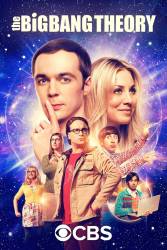The Cooper-Hofstadter Polarization - S1-E9
Continuity mistake: The video of the fight we see on Youtube is different to what we saw earlier in the episode.

Starring: Kaley Cuoco, Johnny Galecki, Melissa Rauch, Simon Helberg, Jim Parsons, Kunal Nayyar
Genres: Comedy
The Cooper-Hofstadter Polarization - S1-E9
Continuity mistake: The video of the fight we see on Youtube is different to what we saw earlier in the episode.
The Pork Chop Indeterminacy - S1-E15
Character mistake: In his conversation with Missy Sheldon makes it clear that his superior intelligence is a result of a random, mutated gene. Since Missy isn't similarly intelligent she obviously isn't carrying this mutated gene (which would be a billion to one shot anyway) so her offspring wouldn't inherit it. Sheldon would know this - his offspring would carry the mutated gene for superior intelligence, Missy's would not. Anyone knowing enough about genetics to use the term 'randomly mutated gene' understands enough to know that the mutated gene would only be expressed in a direct line from the carrier - Sheldon. Also bear in mind he has a model of the DNA molecule in his living room - it is obviously an interest.
The Extract Obliteration - S6-E6
Stephen Hawking: Do you like brain teasers?
Sheldon Cooper: Oh, I love brain teasers.
Stephen Hawking: What do Sheldon Cooper and a black hole have in common? They both suck. Neener, neener.
The Work Song Nanocluster - S2-E18
Trivia: After Sheldon mentions a molecular sieve, they go over to 4a, their apartment. 4a is a kind of molecular sieve.
The Expedition Approximation - S8-E6
Question: Is the mining song Sheldon sings on this episode a real song? If so, what is it called?
Chosen answer: The song is called "Dark as a Dungeon" and was written and first performed by singer-songwriter Merle Travis in 1946. It has been performed by a wide array of artists, including Tennessee Ernie Ford, Harry Belafonte, Dolly Parton, Queens of the Stone Age, Kathy Mattea and Amy Grant. But it was made most famous when it was performed and recorded by Johnny Cash during his concert at Folsom Prison in 1968. According to Wikipedia: "It is a lament about the danger and drudgery of being a coal miner in an Appalachian shaft mine. It has become a rallying song among miners seeking improved working conditions."
Separate from membership, this is to get updates about mistakes in recent releases. Addresses are not passed on to any third party, and are used solely for direct communication from this site. You can unsubscribe at any time.
Check out the mistake & trivia books, on Kindle and in paperback.
Suggested correction: Genes can be dormant. Which allows them to skip generations. Therefor Missy's children could actually get the "mutated" gene. This is especially true since Sheldon and Missy are twins. Also, since the episode is about who out of Leonard, Howard or Raj, Sheldon would allow to "mate" with his sister, there is the added "insurance" of getting any smart genes from any of the 3 Lothario's mentioned above.
If you are going to try to argue with a geneticist about genetics, please use the correct terms. Sheldon is not referring to a recessive gene - there is no such thing as a dormant gene - he is speaking of a randomly mutated gene. Those are the words he used. If he had inherited a homozygous recessive karotype - one recessive gene from each of his parents - then somewhere in his family tree there would similarly gifted people, in which case he would use the correct term - a recessive gene. If Missy is a heterozygotic dominant karotype possessing the recessive gene for super-genius and the dominant for ordinary intelligence then mating her with Howard, Raj or Leonard would be a waste of time as their dominant genius gene would prevent the recessive super-genius gene from being expressed in the phenotype of the resulting child. The child would be highly intelligent but not on Sheldon's standards. It doesn't matter if Sheldon does not know any of this as he refers several times to a randomly mutated gene, not a recessive one. Missy does not carry the super-genius gene. The posting is correct.
Sheldon is prone to magical thinking when necessary to preserve his obsessive need to control his environment. He may have simply ignored the flaw in his reasoning, as even the most intelligent humans do when venturing outside their ares of expertise. He may be interested in the science of genetics, but his Ph.D. in physics doesn't qualify him as an expert in that field.